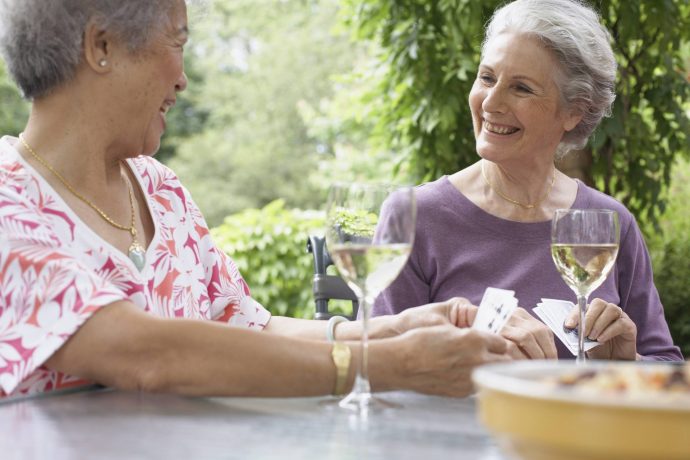Home Companion Care is a growing industry providing elderly, disabled or aged individuals in nursing homes, retirement communities, and long term care facilities with personalized and consistent care giving. The difference between in home companion care and in home senior care lies in the title. Companion services in senior centers provide help in day to day living, while in home companion care provides assistance in medical and other special care giving. Many seniors have developed mental impairments that call for the extra support of a live-in aide. Companion services can also provide companionship, emotional support, and physical care giving to the elderly.
The most common services provided by in home companion care aides include food preparation, housekeeping and laundry assistance, medical services such as drug and physical therapy administration and supervision, transportation, and companionship or personal care. The trained staffs of in home companion care aides are highly trained and qualified. They work closely with their client’s doctors, therapists, and other medical staff in order to administer the required medical treatments. Senior citizens who have special medical needs sometimes require in home care aides who have more specialized training.
Emotional support and companionship can be provided in various forms. The most common emotional support provided by companion care aides is meal prep assistance. Many seniors, especially those with dementia and Alzheimer’s, need assistance in making sure they have a nutritious diet. Aides in home companion care may prepare the seniors meals or may do the cooking. Alternatively, the aides may prepare the meals, but may also do the cooking and allow the seniors to eat in private dining rooms or even in their own kitchens. Some home healthcare providers integrate meal preparation and serving into their client’s home medical treatment plan.
Physical companionship or daily living aids are essential in maintaining senior home health care independence. These daily living aids can include: crutches, canes, walking sticks, a mobility scooter, a walker, and lightweight wheelchairs. All of these devices allow for more comfortable and independent mobility for the elderly patient. Many patients who receive daily living assistance feel a sense of independence and a sense of control over their daily living situation.
Long-term care facilities are usually short on emotional support and companionship. In some cases, nursing homes and skilled care facilities are short on social interaction and support. Elderly patients in these long-term care facilities often feel lonely and isolated. In response, these patients sometimes form very close relationships with their doctors and/or nurses. In the case of a doctor, this intimate relationship allows the doctor to prescribe more aggressive treatment plans for the elderly patient. In the case of a nurse, a caring relationship develops between the caretaker and the nurse assisting the patient.
Nonmedical home care services provided by companion care providers include housekeeping services, grocery shopping services, errands, gardening assistance, transportation services, household cleaning, shopping assistance, meal preparation assistance, household medical assistance, and other assistance services. Some home care agencies may offer housekeeping services. These housekeeping services may include laundry, housekeeping products, and housekeeping tasks, such as light cleaning, dusting, and vacuuming. Housekeeping services are often included in the rental agreement between the agency and the client.
Skilled companions provide non-medical home care for seniors in skilled nursing homes, skilled care, adult day care centers, hospitals, and nursing homes. Skilled companions provide companionship services in homes for elderly people with disabilities, limited ability to perform activities of daily living, cognitive impairment, and dementia. Skilled companions can be caregivers, aides, and personal care assistants.
Companion care can provide social isolation for seniors. Seniors who experience social isolation are at greater risk for health problems and are more likely to be admitted to the hospital. This caregiver has the added benefit of building strong relationships with seniors in need of companionship. These relationships build a sense of trust, security, and empowerment that can help to reduce the fear of abandonment and improve quality of life for seniors with disabilities or other social isolation issues. Skilled companions are an important part of the network of loved ones supporting senior citizens in their homes.

